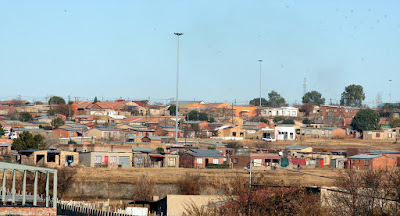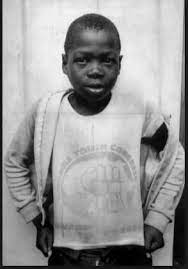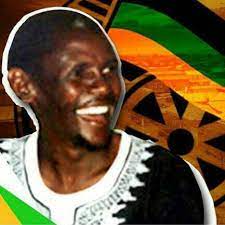Here are background notes to read on the Struggle history of Parys and some personalities involved.

What happened in parys during the anti apartheid struggle.
1985 Bus Boycott and shootings
Parys is a town located in the Free State Province of South Africa, and it played a significant role in the anti-apartheid struggle.
During the apartheid era, Parys, like many other towns in South Africa, was segregated along racial lines. The majority of the town’s population was black, and they were subject to discriminatory laws and policies that denied them basic rights such as the right to vote, own property, and move freely.
In the 1980s, the anti-apartheid movement gained momentum, and Parys became a site of resistance. The town was the site of numerous protests, strikes, and boycotts organized by anti-apartheid activists. These actions were met with brutal repression by the police, who used tear gas, rubber bullets, and live ammunition to disperse the crowds.
One of the most significant events in Parys during the anti-apartheid struggle was the 1985 Parys bus boycott. The boycott was organized by the Parys Bus Committee, which was led by members of the United Democratic Front (UDF), a coalition of anti-apartheid organizations. The boycott was a response to the poor conditions on the buses that black people were forced to use, as well as the high fares they were charged. The boycott lasted for several weeks and was successful in forcing the bus companies to lower their fares and improve the conditions on the buses.
The anti-apartheid struggle in Parys was not without its casualties. In 1985, two anti-apartheid activists, Johannes Tshabalala and Pule Phatsoane, were shot and killed by police during a protest. Their deaths sparked outrage and led to further protests and demonstrations.
Overall, the anti-apartheid struggle in Parys was a critical part of the broader struggle for freedom and equality in South Africa. The actions of the activists in Parys, and other towns like it, helped to bring an end to apartheid and usher in a new era of democracy and human rights in South Africa.
Citations
“The Parys Bus Boycott: A Study of Protest and Repression in the South African Countryside” by Sean Field. African Studies Review, Vol. 44, No. 1 (Apr., 2001), pp. 91-117.
“Revolt on the Vaal: The Parys Uprising of 1985” by Jonathan Hyslop. South African Historical Journal, Vol. 40, No. 1 (1999), pp. 61-85.
“History of Parys” on the Parys Tourism website: https://www.parys.info/history
“Remembering Johannes Tshabalala and Pule Phatsoane” on the South African History Online website: https://www.sahistory.org.za/article/remembering-johannes-tshabalala-and-pule-phatsoane
Stompie Seipei

Stompie Seipei was a young anti-apartheid activist who was kidnapped and murdered in 1989. His death had a significant impact on the anti-apartheid struggle in South Africa, and it led to increased international attention and condemnation of the apartheid regime.
Stompie Seipei was born on August 18, 1973, in South Africa’s Free State province. He became involved in the anti-apartheid struggle as a young boy, joining the African National Congress (ANC) and participating in protests and demonstrations.
In 1988, when he was just 14 years old, Stompie was abducted from his home in Soweto by members of the ANC’s armed wing, Umkhonto we Sizwe. They accused him of being a police informant, a charge that was later proven to be false. Stompie was taken to the home of Winnie Mandela, the ex-wife of ANC leader Nelson Mandela, where he was held captive and subjected to brutal torture and abuse.
Stompie’s death came to light when the body of a young boy was found near Winnie Mandela’s home. It was later revealed that the boy was Stompie Seipei. Four men, including Winnie Mandela’s bodyguards, were charged with his murder, but only two of them were convicted.
Stompie Seipei’s death was a tragedy that shook the anti-apartheid movement and brought attention to the violence and abuses that occurred within the movement itself. It also highlighted the important role that youth played in the struggle against apartheid, and the sacrifices they made for freedom and democracy in South Africa.
Fezile Dabi

Fezile Dabi was a South African anti-apartheid activist and politician who played an important role in the struggle against apartheid in South Africa.
Dabi was born in 1948 in the town of Kroonstad in the Free State Province of South Africa. He grew up in a politically active family and became involved in the anti-apartheid struggle at a young age. He joined the African National Congress (ANC) in 1971 and was involved in underground activities, including sabotage, for which he was arrested and imprisoned for several years.
After his release from prison in 1979, Dabi continued his political activities, organizing protests and campaigns against the apartheid regime. He played a key role in the formation of the United Democratic Front (UDF), a coalition of anti-apartheid organizations that played a crucial role in the struggle against apartheid.
In the 1994 democratic elections, Dabi was elected to the National Assembly as a member of the ANC. He was later appointed as the premier of the Free State Province, a position he held until his death in 2001.
Dabi was known for his commitment to social justice and equality, and his dedication to the struggle for freedom and democracy in South Africa. His legacy continues to inspire young activists in South Africa and around the world. The Fezile Dabi District Municipality in the Free State Province is named in his honor.
Citations
“Fezile Dabi – A remarkable South African” by Linda Doke. Daily Maverick, 8 May 2013. https://www.dailymaverick.co.za/article/2013-05-08-fezile-dabi-a-remarkable-south-african/
“Fezile Dabi: The Courageous Activist and Politician” on the African Activist Archive website. http://africanactivist.msu.edu/document_metadata.php?objectid=32-130-21B
“Fezile Dabi (1948-2001)” on the South African History Online website. https://www.sahistory.org.za/people/fezile-dabi
“Fezile Dabi Municipality” on the Free State Provincial Government website. https://www.freestateonline.fs.gov.za/district-municipalities/fezile-dabi-municipality/

